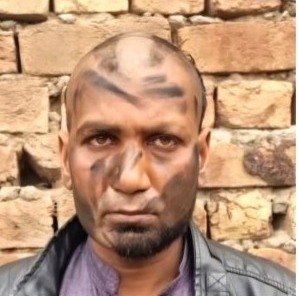
The Unspoken Horror: Child Sexual Abuse in Pakistan and Its Psychological Scars
Every day in Pakistan, at least 11 children fall victim to sexual violence. This staggering statistic, reported by the child protection organization Sahil, is not merely a number—it is a chilling reflection of a crisis that is both systemic and deeply psychological. With 4,213 cases recorded in 2023 alone, the issue of child sexual abuse is not just a matter of criminal justice but one of profound and lasting trauma.
Yet, despite the severity of the issue, child sexual abuse remains shrouded in silence, buried under layers of stigma, fear, and systemic neglect. Survivors face not only external barriers—ineffective legal systems, societal judgment, and pressure to remain silent—but also internal ones, including the psychological impact of trauma that can shape their entire lives.
The Psychological Impact: A Life of Trauma
Child sexual abuse is not just a crime against the body; it is a deep-seated assault on the mind. Survivors often develop post-traumatic stress disorder (PTSD), a condition characterized by flashbacks, nightmares, emotional numbness, and hypervigilance. The brain, particularly the amygdala and hippocampus, undergoes changes due to repeated trauma exposure, making survivors more prone to chronic stress and emotional dysregulation.
In addition to PTSD, many victims suffer from complex trauma, a psychological condition that arises from prolonged exposure to abuse, particularly in cases where the perpetrator is a trusted figure. This can lead to dissociation, where the child mentally “disconnects” from reality as a defense mechanism, leading to long-term difficulties in forming healthy relationships and regulating emotions.
Adverse Childhood Experiences (ACEs) research—pioneered by psychologists Vincent Felitti and Robert Anda—suggests that childhood trauma, including sexual abuse, significantly increases the risk of developing depression, anxiety disorders, substance abuse issues, and even physical illnesses such as heart disease and diabetes. Victims of childhood sexual abuse are also at a higher risk of suicidal ideation, with studies showing that they are nearly four times more likely to attempt suicide compared to those without such experiences.
The Culture of Silence and Systemic Failure
Compounding the psychological trauma is the culture of silence that pervades Pakistan. In many cases, perpetrators are not strangers but individuals within the victim’s own community—teachers, religious leaders, neighbors, even family members. Grooming, a manipulative process in which abusers build emotional connections with children to exploit them, is common, making it harder for victims to recognize or report the abuse. The betrayal trauma that follows is profound, as children struggle to reconcile feelings of trust and violation.
Survivors often experience self-blame and internalized shame, reinforced by societal attitudes that stigmatize victims rather than hold perpetrators accountable. Many cases go unreported due to institutional betrayal, a term used in psychology to describe how institutions—such as law enforcement or religious bodies—fail to protect victims, further deepening their trauma. Pakistan’s legal system remains painfully inadequate in addressing these crimes. The Zainab Alert Response and Recovery Act (2020), which was meant to streamline child abduction and abuse cases, has not been fully enforced, and conviction rates remain shockingly low. Legal retraumatization, where victims are forced to relive their experiences during police investigations and court proceedings, further discourages them from seeking justice.
Breaking the Cycle: What Must Be Done
Understanding the psychology of abuse survivors is the first step toward meaningful intervention. To address this crisis, a trauma-informed approach is necessary—one that prioritizes psychological support alongside legal action.
- Comprehensive Mental Health Support: Specialized trauma therapy, including Cognitive Behavioral Therapy (CBT) and Eye Movement Desensitization and Reprocessing (EMDR), has been proven to help survivors process their trauma. The government must integrate these services into healthcare systems, ensuring free psychological care for survivors.
- Training Law Enforcement and Judiciary: Police officers, lawyers, and judges must be trained in victim-centered approaches, ensuring that survivors are treated with sensitivity rather than skepticism. Specialized child protection units should be established within police departments.
- Educational Reforms and Awareness Campaigns: Schools must introduce age-appropriate personal safety education that teaches children about bodily autonomy and how to recognize grooming tactics. Public awareness campaigns must challenge rape myths and shift the blame from victims to perpetrators.
- Strict Legal Reforms and Speedy Trials: The current backlog of child abuse cases results in delays that further traumatize victims. Specialized child abuse courts with expedited trial processes and harsh punishments for perpetrators must be established.
- Safe Spaces for Survivors: Community-based child advocacy centers can provide safe spaces where survivors receive integrated legal, medical, and psychological support without fear of retribution.
A Society’s Moral Test
The psychologist Carl Jung once said, “The healthy man does not torture others—generally it is the tortured who turn into torturers.” If Pakistan fails to address the cycle of childhood sexual abuse, it risks creating generations of psychologically wounded individuals, many of whom will carry their trauma into adulthood, affecting future families and communities.
The brutal reality of child sexual abuse is not just an individual or familial issue—it is a societal failing. And societies that fail their children ultimately fail themselves. If Pakistan is to heal, it must start by confronting this crisis head-on, prioritizing justice, psychological support, and systemic reform. Because the true measure of a nation is how it protects its most vulnerable.
The question remains: Will we continue to look away, or will we finally confront the horror within?






